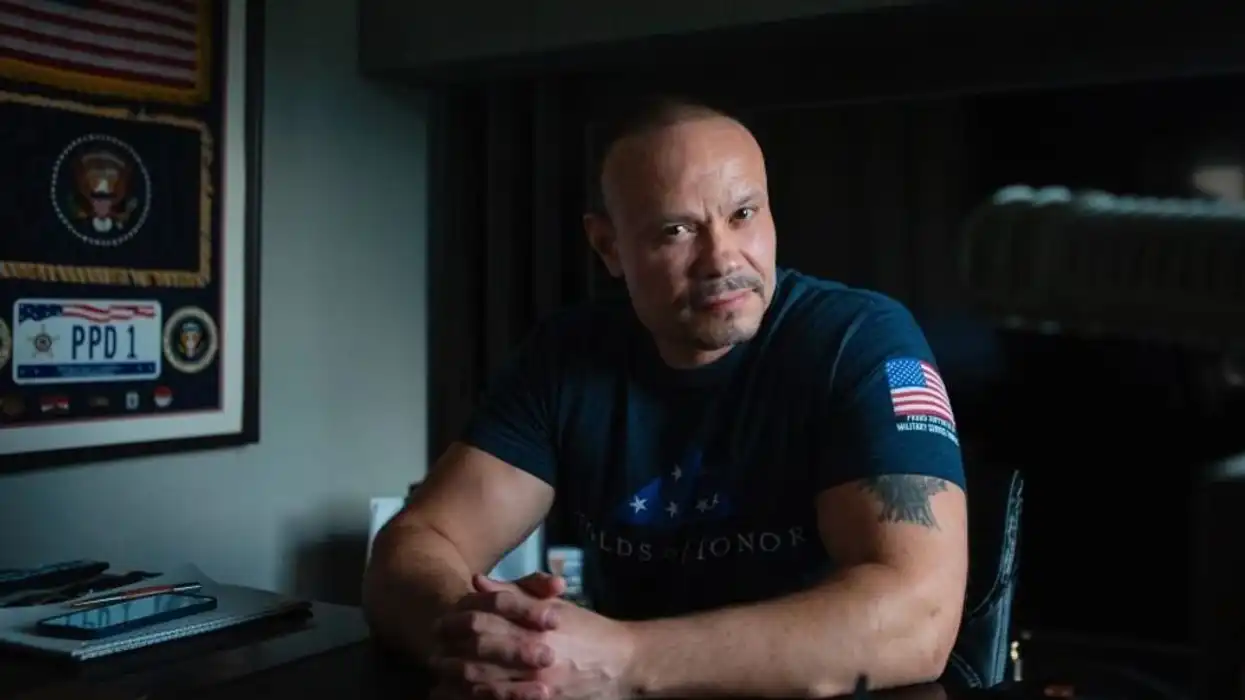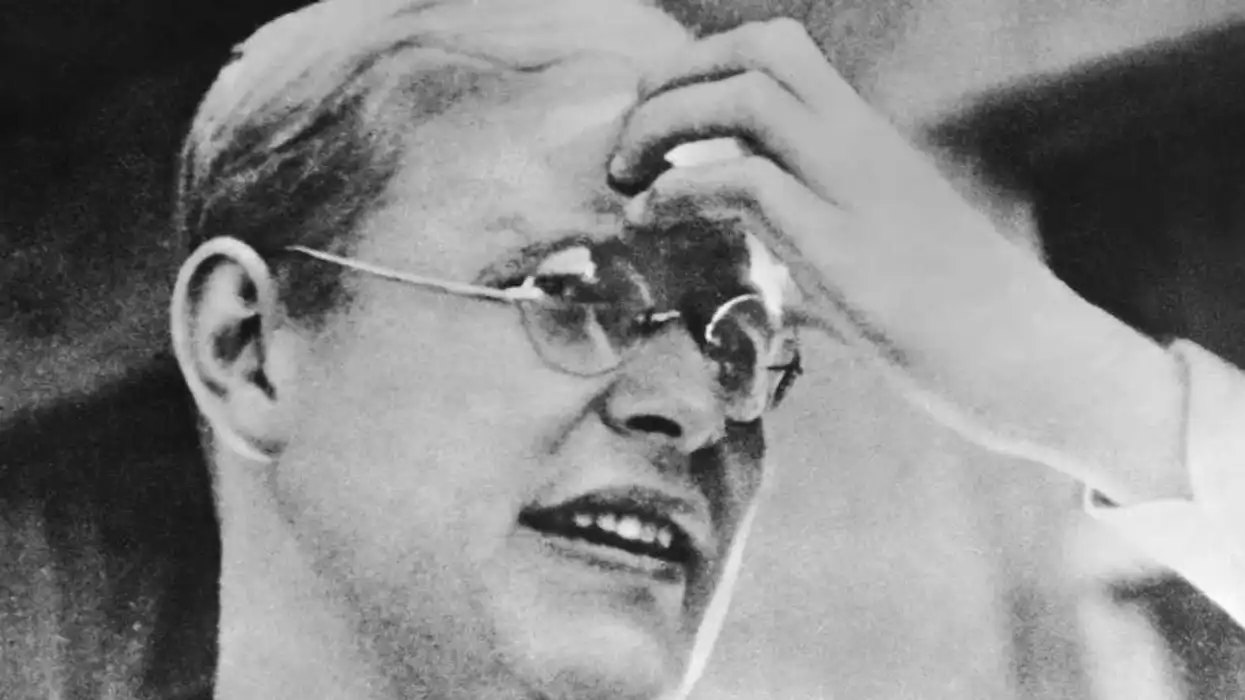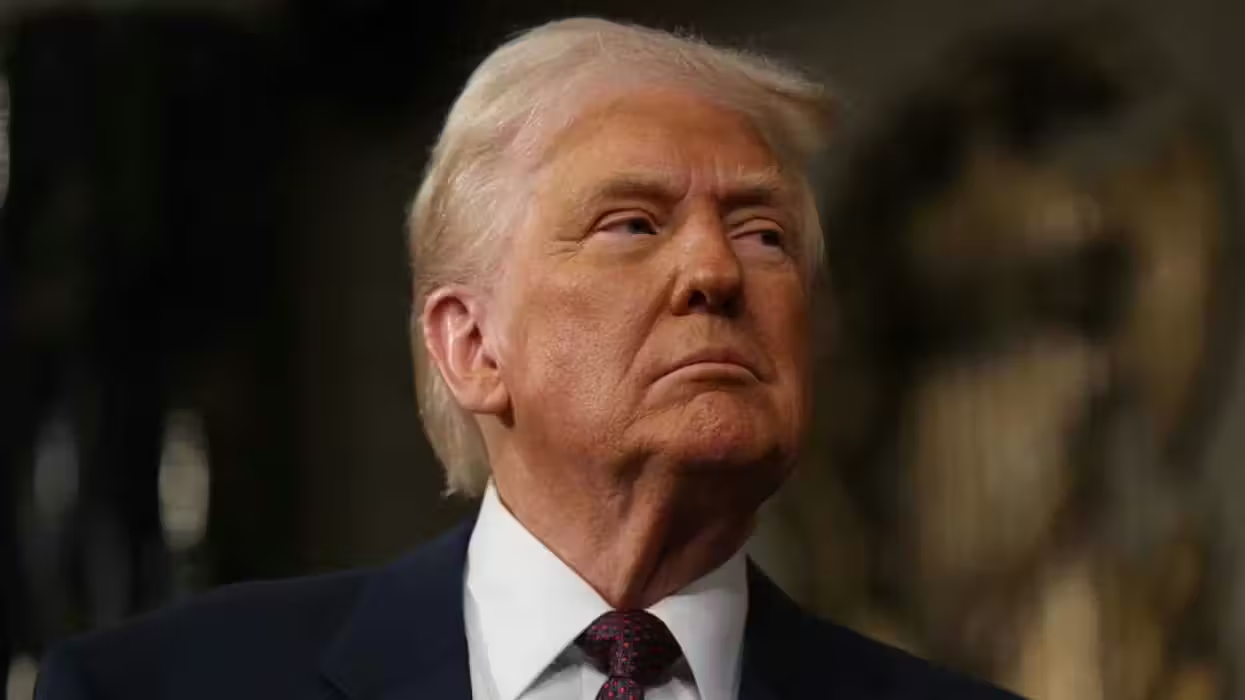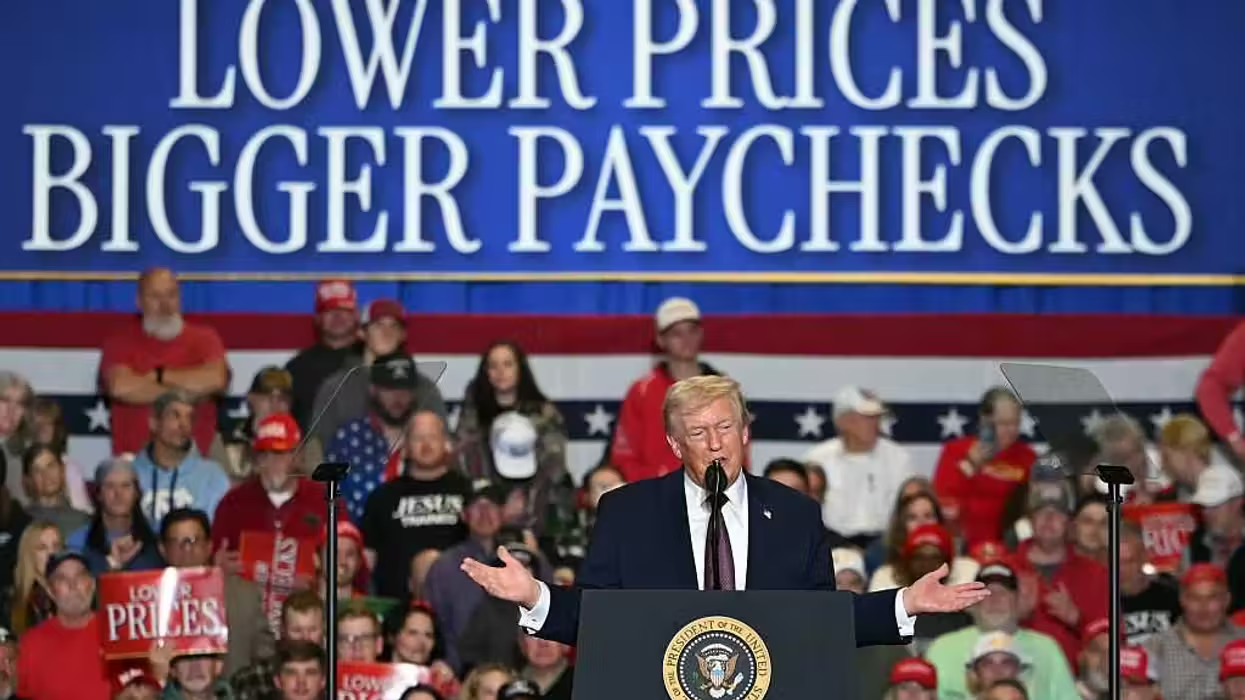
© 2026 Blaze Media LLC. All rights reserved.
Pastors Unite Against IRS Tax Code Restrictions on Political Speech in the Pulpit
September 24, 2011
Pastors Unite Against IRS Code Restricting Political Speech at the Pulpit
 Are American pastors free to share their political views from the pulpit? The answer to this question is complex. While some issues can certainly be discussed, there are also government-sanctioned limitations on partisan preaching (especially if churches expect to keep their tax-exempt status).
Are American pastors free to share their political views from the pulpit? The answer to this question is complex. While some issues can certainly be discussed, there are also government-sanctioned limitations on partisan preaching (especially if churches expect to keep their tax-exempt status).
A regulation added to the IRS code back in 1954 has muddied the waters for pastors, creating a scenario in which some leaders are too fearful of federal consequences to exercise their right to free speech from the pulpit.
With pastors unsure of just how far they can take their partisan comments about specific candidates, some religious leaders find themselves purposefully avoiding the subject -- a result that has potentially led to a decline in church education on issues of great social and political importance.
As faith influences an individual's take on social and political issues, one wonders why religious leaders face restrictions on speech that is so intertwined with personal religious beliefs.
The fear and uncertainty that some faith leaders experience is driven by the aforementioned ban on political campaign activity that was instituted on both charities and churches, alike, nearly 60 years ago. It was back in 1954 that Congress approved of what has become known as the "Johnson Amendment." The provision, which still stands today, explicitly prohibits 501(c)(3) organizations (churches and charities) from engaging in campaign activity.
Rather than declining in prevalence over time, this regulation has been strengthened. The last change was made to it back in 1987, when the amendment's language was tightened to clarify that the restrictions should also cover statements and stances that stand against candidates (previously it was interpreted to only stand for statements that supported specific candidates). The IRS describes a 501(c)(3) as a group:
"which does not participate in, or intervene in (including the publishing or distributing of statements), any political campaign on behalf of (or in opposition to) any candidate for public office."
Since religious leaders -- be they liberal or conservative -- are legally restricted in recommending or railing against specific political candidates, silence, for some, has likely been the response. This has created an environment under which some leaders feel that they cannot remain true to their personal beliefs and convictions.
The Speak Up campaign (launched by the Alliance Defense Fund) addresses this important issue, while working to "protect and promote" the rights of American churches. In addition to making faith leaders aware of their constitutional right to free speech, the movement encourages pastors to stop self-censoring and to start making their political voices heard.
Below, see a trailer that comprehensively explains Speak Up in some pastors' own words:
To combat these restrictions, which critics believe severely impede the free speech of pastors and faith leaders, alike, the ADF also launched the Pulpit Initiative and Pulpit Freedom Sunday back in 2008. The project, designed to restore pastors' rights to speak openly about any and all issues addressed in the Bible, described the historical restrictions on faith leaders as follows:
Historically, churches have emphatically, and with great passion, spoken Scriptural truth from the pulpit about government and culture. Historians have stated that America owes its independence in great degree to the moral force of the pulpit. [...]
All that changed in 1954 with the passage of the "Johnson amendment" which restricted the right of churches and pastors to speak Scriptural truth about candidates for office.
The Pulpit Initiative is urging pastors to come together to challenge this free speech-altering restriction. And proponents of the movement aren't shy. While they don't want to turn churches into political mechanisms, they do want to see the Johnson Amendment declared unconstitutional. In their view, the IRS should have no right to censor what a pastor preaches about, be it political or not. The Speak Up web site has more:
ADF is actively seeking to represent churches or pastors who are under investigation by the IRS for violating the Johnson Amendment by preaching biblical Truth in a way that expresses support for – or opposition to – political candidates. ADF represents all of its clients free of charge.
But in addition to legal help, pastors can also join in on Pulpit Freedom Sunday, an annual event the coalition has launched to encourage pastors to preach sermons that to examine candidates' stances. Aside from exploring candidate opinion, churches are encouraged to look at what Scripture says about each issue. Then, they will make specific recommendations about whether or not the congregation should vote for or against specific candidates.
Following the event, each pastor lets the IRS know about his or her sermon. The hope is that making the government aware of the code violation will spark an audit. Then, the constitutionality of the Johnson Amendment can be hashed out once and for all.
In 2008, only 33 pastors participated; this expanded to 80 faith leaders in 2009 and then nearly 100 in 2010. With the movement rapidly growing, even more leaders are poised to take part in this year's Pulpit Freedom Sunday on October 2, 2011.
Below, watch Pastor Jim Garlow from Skyline Church in La Mesa, California, discuss the movement with Glenn Beck:
For more information on the Speak Up movement and Pulpit Freedom Sunday or to get your church involved click here.
Want to leave a tip?
We answer to you. Help keep our content free of advertisers and big tech censorship by leaving a tip today.
Want to join the conversation?
Already a subscriber?
Billy Hallowell is a digital TV host and interviewer for Faithwire and CBN News and the co-host of CBN’s "Quick Start Podcast."
Billy Hallowell
Billy Hallowell is a digital TV host and interviewer for Faithwire and CBN News and the co-host of CBN’s "Quick Start Podcast."
more stories
Sign up for the Blaze newsletter
By signing up, you agree to our Privacy Policy and Terms of Use, and agree to receive content that may sometimes include advertisements. You may opt out at any time.
Related Content
© 2026 Blaze Media LLC. All rights reserved.
Get the stories that matter most delivered directly to your inbox.
By signing up, you agree to our Privacy Policy and Terms of Use, and agree to receive content that may sometimes include advertisements. You may opt out at any time.






